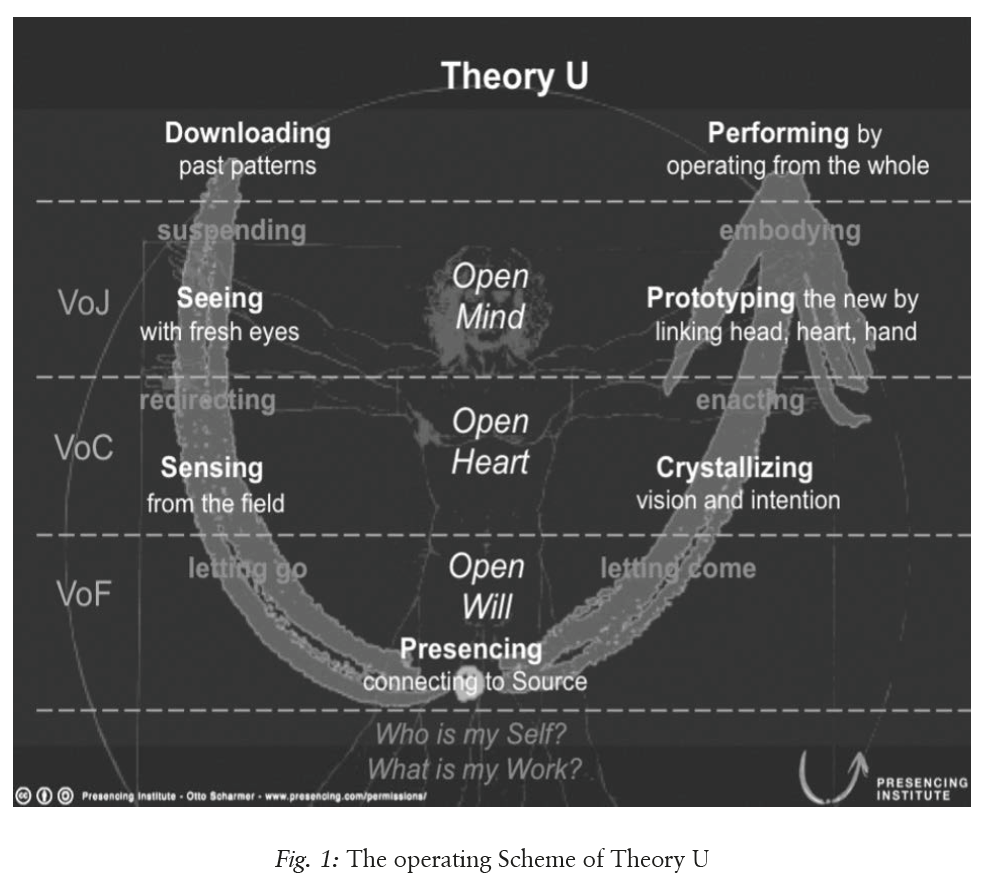Explorative Experiments In Thinking
Export Article Citation as
- Plain text
- BibTeX
- RIS format
- Download price : € 6.00
Abstract:
In this paper, I focus on the observation of thinking that Rudolf Steiner indicates in his Philosophy of Freedom. In an article on the same subject, R. Ziegler (2023) progresses from the usual sense oriented and thought experiments to what he calls explorative experiments in thinking. It is this latter notion that I take up, mold, transform and in the end transmute. What starts to unfold, then, is a second layer in our thinking. A first experience can be that of thinking movements, which may evolve into thinking forms or images, and then can be observed to undergo what appear to be projective geometrical transformations. In the end, these experiences may coalesce into a general description of our thinking processes as four-layered and consequently seven-phased, comparable to the scheme of Theory U. In the final part of this treatise, the results of what these explorative experiments in thinking appear to show are compared with the investigations of brain researchers like Petitmengin (2007, 2013), van Turenhout (1998) and Libet’s widely publicized experiments. Some of their findings seem to be in close concordance with what we developed here, others appear to call up even greater difficulties than envisaged before.
